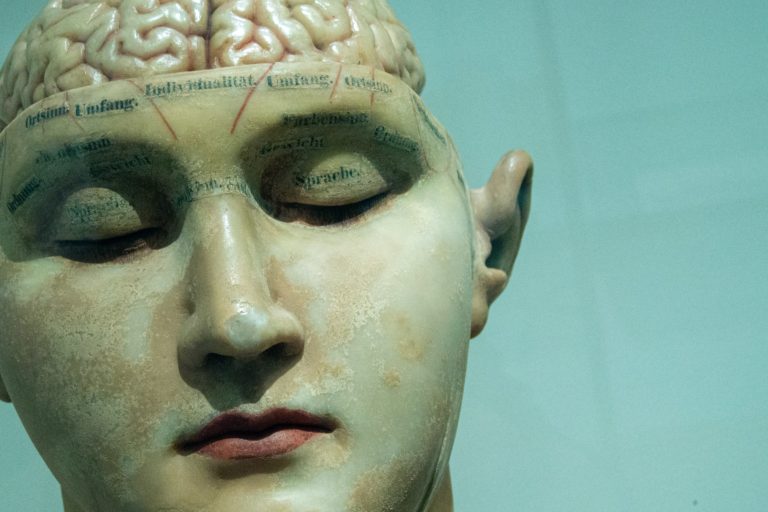Losing The Mind
The mind is a dangerous tool if left unchecked. The purpose of the mind is for problem solving and communication. It was not meant to be running and running for every minute of the day. Much effort has been put into developing mastery over the mind. To quiet the mind, and to use it only when it is needed. This is something to work towards when you are ready, and we will discuss the beginnings of this when we speak about meditation. However at this time it will benefit you to learn how to refocus the direction of your thoughts when needed.
Adjust And Refocus Your Thoughts
Aside from dropping the mind all together, there are two ways to lead the mind away from negativity. You can either change your perspective or change your focus entirely.
Changing your perspective and adjusting negative thoughts can feel like brainwashing yourself. It doesn’t seem natural when you first try to replace negative thoughts with something positive. At first, you might need to steer them in a more neutral direction.
If you’re telling yourself that your life is a mess, then it will be hard to convince yourself that everything is perfectly fine instead. It will feel dishonest to yourself. You might be able to tell yourself that things are okay, they could be worse, and that they’ll get better. Changing your thoughts from negative to neutral will begin to lift the weight of negativity. Once you’ve gotten used to that, it will be easier to replace neutral thoughts with positive thoughts.
If you’re having trouble coming up with something positive, then remind yourself of what you’re grateful for. It’s physically impossible to feel unhappy while you’re feeling grateful.
If work is stressing you out, then remind yourself that you’re grateful to have a job. If there’s traffic on your commute home, then be grateful to have a place to come home to.
It can help you to have some go-to phrases or mantras. Before spiraling yourself into misery, you can use the phrases to steer your thoughts in a more beneficial direction.
If you’re running late or your plans were ruined, it is easy to become frustrated. Instead of gritting your teeth every time, you can use the mantra, “Everything happens for a reason.” Truly, you don’t know what could have happened if things did go as planned. You might’ve been at the wrong place at the wrong time and got hit by a bus!
Other times, you might try the mantras
- All is well
- Being happy is my first priority
- This negativity is not important, and it is not worth it
If it is too hard for you to adjust, then refocus.
When you feel stress building up, you can decide that it’s not worth holding onto the negative thought. Then refocus your attention.
It’s okay to let yourself get out of your head by doing something productive, watching television or stand up comedy, doing something creative, going outside and getting into nature, giving yourself a massage, listening to music, reading, exercising, or socializing.
For some people, all the distractions in the world are not enough to refocus your thoughts and get out of your head.
If you’ve never exercised your brain’s ability to focus, then it won’t be easy to do so on command. To strengthen your ability to focus, it would benefit you to practice meditation. This we will cover in the following section.
Meditation has become very misunderstood. It has become just another task to check off the list. While we discuss meditation as a means to reduce the activity of the mind, and as a means to focus the thoughts, it is more than this. If you go into meditation as a means to an end then you will not receive the fruits of meditation. However in the beginning, your mind is very active. There will be effort involved. The effort of meditation will be of focus. The focus may be on the breathing, or on the senses. The effort will also be of patience. You will need patience to allow the mind to run its course. This you will learn.
For now it is for you to understand that a regular practice of meditation will give you the capability of focusing your attention away from negative thoughts. This practice will allow you to escape the mind and become more present to the reality around you. The more focus you have on the present moment, the less focus you have on the negativity designed by the mind.
Stop Reaching For Happiness
While we speak on the alleviation of misery, it is also to be understood that the relentless desire for happiness will lead you astray. Initially, it is necessary to have the realization that bliss is desired. Once you have begun this journey, it is necessary to understand that the constant search for happiness has been in vain for your entire life.
You have searched for the purchase, the life, the lover, and the success that will bring you bliss. However, given some time you will realize that whatever you thought would bring you happiness did not last. The bliss that arises from external sources is fleeting. Once the pleasure fades you will again be in search.
This is because the external is not the source of bliss. Many who have everything will admit that they do not have bliss. How many luxuries do you now have that you no longer appreciate? The ability to be happy lies in the ability to experience the purity of reality. To appreciate life and existence itself. The natural state of the body is to be in bliss. However the mind takes you away from that.
To consistently be in a state of searching for happiness, you are not recognizing that it is a state that you already have access to. The search for happiness is not an addition to what you already have, it is a subtraction. An unraveling of the thoughts, beliefs, and desires that crowd the mind and prevent your natural state of bliss.
Prioritize
It is easy to lose sight of what is truly important in your life when you have rent due and you’re behind on all your projects at work. Instead of prioritizing your mood and giving yourself time to relax or appreciating what you have, you eventually spend all of your time stressing over every flaw in your life and everything you need to accomplish.
What would be important to you if you found out that you only had days to live? Not the argument you had with your spouse or how much money you have. You’d wish you hadn’t wasted so much time being unhappy about things that are ultimately insignificant. You would wish that you’d have appreciated everyone and everything in your life instead of taking it for granted.
At least once a day, remind yourself of what’s really important. Create a priority of feeling blissful otherwise you may find on your last day that your entire life has been wasted.
Let Yourself Feel Better
If you are having a hard time using this advice, then make sure you are ready to feel happy. Many times, a person will remain unhappy because they are not yet allowing themselves to feel better.
It could be that you receive sympathy when you complain, you identify yourself as someone who is always stressed, you feel like you can’t be happy until you accomplish something. It could be that you feel guilty or not worthy of being happy, or maybe you’re so used to thinking about something that it’s hard to stop.
It could take some time to let go of negative thoughts, however in order to break this cycle you will need to decide what is most important to you. Holding onto the negative thoughts that are harmful to your mood and your brain function, or letting them go so you can think clearly and be happy.





